Plumbing Problems at Home or Work? Rely on the Delk Plumbing Difference
Even with the best care and upkeep, every homeowner will have to deal with plumbing issues at some point. But finding a reliable plumbing company in Metro Charleston is more challenging than you might think. That's where our plumbers in cityname, state, come in. We at Delk Plumbing are committed to providing our clients with the highest quality craftsmanship, the most reliable service, cost-conscious pricing, and long-lasting solutions. Whether you need help fixing a minor issue like a clogged toilet or you're looking at major water heater repair, we're here to serve you with excellence.
Since 1978, residents and business owners have had a trustworthy source for resolving a wide array of plumbing issues with the friendly folks at Delk Plumbing. We're proud to have built a reputation for exceptional customer service and dependable workmanship for residential and commercial customers.
We go to great lengths to understand our customers' unique needs. You can rest assured that our friendly technicians will arrive on time, work diligently to resolve your issues, and always treat you with respect and kindness. Whether you need help with routine upkeep or want to upgrade your home with new appliances, our staff is by your side.
When you boil it down to the basics, our goal is to treat you the same way we'd like to be treated: with respect, honesty, and top-notch service from experienced plumbing professionals. Delk Plumbing offers a full range of plumbing solutions for your home or business, including:

Plumbing Services

Water Heater Repair
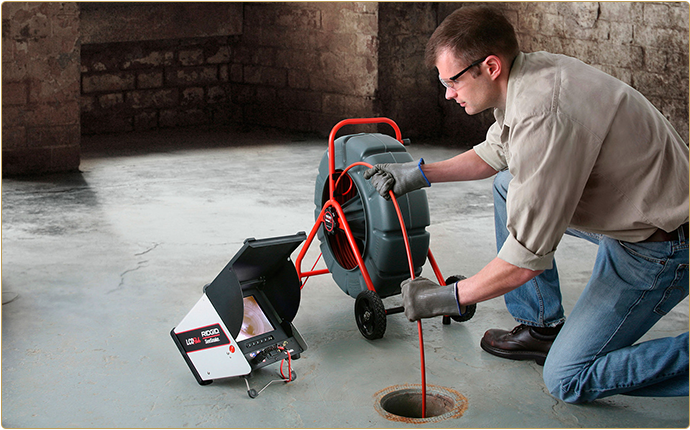
Drain and Sewer Services

Re-Piping
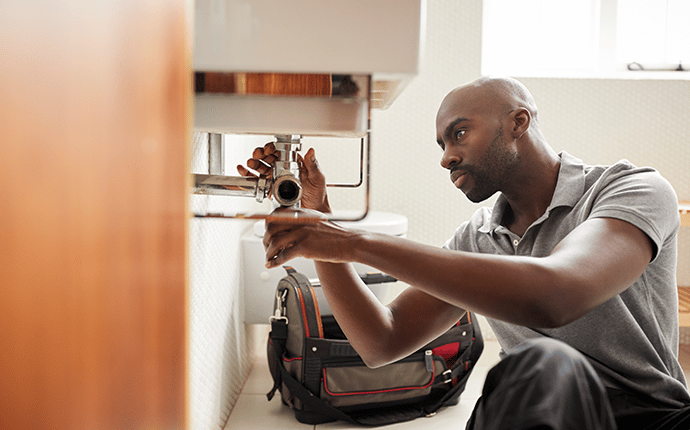
Commercial Plumbing Services
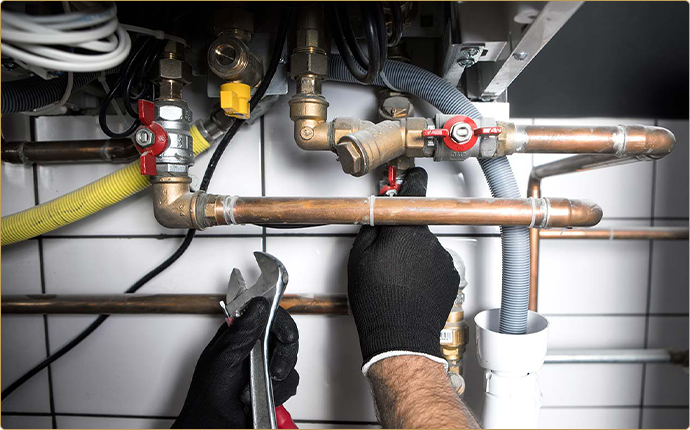
Gas Line Installation and Repair
Plumbing Services
- Plumbing Problems at Home or Work? Rely on the Delk Plumbing Difference
- Protect Your Home with Delk's Residential Plumbing Services
- 5 Signs It's Time to Call Our Plumbers in Lincolnville, SC
- Keep Your Water Heater Running Correctly with Delk Plumbing
- Drain Cleaning Done Right from Delk Plumbing
- Protect Your Property with Delk's Gas Line Installation and Repair
- Looking for the Best? Contact Delk for Quality Plumbers in Lincolnville, SC
Service Areas
At Delk Plumbing, we take your plumbing needs seriously. Our licensed, insured technicians strive to get the job done right the first time, no questions asked.
Protect Your Home with Delk's Residential Plumbing Services
Did you know that the average South Carolina homeowner uses around 100 gallons of water every day? It's logical to think that something may go wrong with that amount of water in constant use. Considering many homeowners wait until the last minute to address their plumbing problems, that's especially true.
Unfortunately, it's common for homeowners to misdiagnose or misunderstand the plumbing issues they're facing. And if they can provide a solution, it's only a short-term fix. Even then, making one wrong move could make the problem worse. That's why having a trustworthy team of plumbers in cityname, state, to rely on is crucial.
When it comes to plumbing for your home, Delk Plumbing provides a long list of services, from drain cleaning and hydrojetting to sump pump repair and water heater services. Is your toilet so clogged that you need to hire a professional? Do you think you might have a leak? At Delk Plumbing, we're here to address all of your residential plumbing needs, small or large. Need a water softener service? We can help with that too!
Whether you have an annoying leak or a more serious plumbing emergency, our team of experts is here to serve you with expertise and efficiency. That way, you can go about your day without being disrupted.
Some of the most requested plumbing services we offer include:
- Drain Cleaning
- Water Leaks
- Hydro jetting
- Clogged Toilet Service
- Water Heater Services
- Garbage Disposal Service
- Sump Pump Replacements
- Slab Leak Repair


5 Signs It's Time to Call Our Plumbers in Lincolnville, SC
"When is it time to call a plumber near me?"
In terms of commonly-asked questions, this is a big one. Most people would like to think they'd know when they have a plumbing issue at home. In reality, plumbing problems can be pretty tricky to diagnose without the help of a professional. Many serious plumbing problems aren't easy to spot without a sharp eye and experience.
If you're unsure whether you need to call a plumber, consider these common signs that it's time to call Delk Plumbing:
Contact Us
Get Service Now 843-873-6331
843-873-6331

Water Draining Slowly
With enough time, every shower and sink becomes susceptible to slow drainage caused by soap scum, hair, and other debris. These problems are typically easy to fix with regular upkeep and cleaning. However, if all the pipes in your home are draining slowly, your main sewer line may be clogged. If your home has a clogged sewer line, it can quickly become a nightmare. Call Plumb Pro ASAP, as clogged or blocked sewer lines are emergency-level problems.

Brown Spots on Walls and Ceilings
Any spots are ugly when they stand out on your ceilings or walls. But if you see brown spots, you could have a leak in your attic space or elsewhere in your home. Water leaks are terrible all around, both from a repair standpoint and a health standpoint. You wouldn't want your family breathing in mold spores, after all. If you see spots forming on your walls or ceilings, call Delk Plumbing ASAP. Waiting too long could mean more expensive repairs and renovations.

Low Water Pressure
Few things are as frustrating as taking a shower with low water pressure. If the water coming out of your shower head is unreasonably low, it could be a sign that you have serious pipe clogs. Delk Plumbing can help shed light on your low water pressure problem and take care of the problem quickly and efficiently.

Discolored Water Pipes
When was the last time you checked the plumbing under your sinks or in your basement? If it's been more than a few months, make it a point to do so soon. Inspecting your home's water pipes for signs of discoloration is a must-do. Call a reliable plumbing company like Delk Plumbing soon if you notice strange colors on your home's piping. You could save yourself costly repairs and a whole boatload of headaches.
Delk Plumbing Pro Tip: Look for white or green stains near the joints and seams of your copper water pipes. If you notice such spots, your pipes may be corroding from a leak. Cast-iron pipes and galvanized steel that have red patches are most likely full of rust and are likely to burst.

Burbling Toilet
Apart from flushing, your toilet should be pretty quiet. However, if you hear burbling noises at random times during the day, you might have a plumbing problem. Noticeable gurgles from your toilet might mean that your vent stack is obstructed. You could also have a severe sewer line block. Either way, this type of issue is best handled by a trustworthy plumbing company like Delk Plumbing.
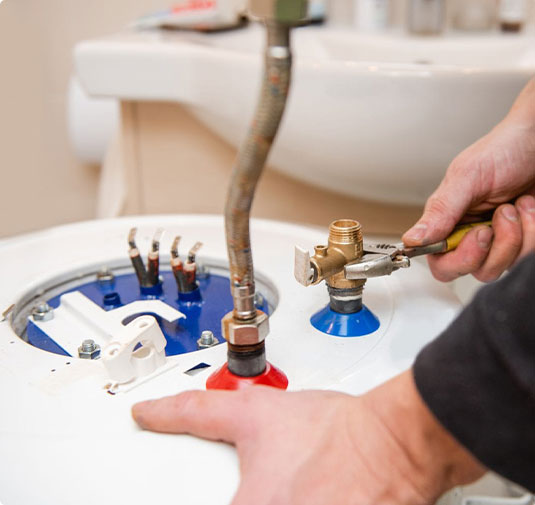
Keep Your Water Heater Running Correctly with Delk Plumbing
Your water heater is a central part of your everyday life. From bathing and cooking to cleaning and washing, you need hot water in your home. But when your water heater is on the fritz, it can cause a long list of problems that snowball out of control quickly.
Fortunately, our plumbers in Lincolnville, SC have the tools and knowledge to ensure your family doesn't go without hot water. Whether you need a quick water heater repair for a small problem or you need a full replacement unit, Delk Plumbing is here to help.
Call Us For Servise
 843-873-6331
843-873-6331
How Long Will Your Water Heater Last?
With the right maintenance and care, your home's hot water heater should last a long time. In general, a well-kempt water heater should last more than ten years. Like all things, however, nothing lasts forever. With time, your water heater will get to a point where it will need heavy maintenance or even replacement before your life is interrupted.
At Delk Plumbing, our team of experts can help repair or replace your home's water heater - whichever is best for your budget and your situation.

Common Signs You Need Water Heater Repair
Is your family complaining that the hot water is out? Have you heard strange noises coming out of your water heater? If so, your water heater may be compromised. Here are a few of the most common signs you need to call Delk Plumbing for water heater repair services:

1.Hot Water Doesn't Last
Your water heater is designed to give you hot water any time. That's why it has gallons of hot water inside. But if you notice your water going from hot to cold quickly without using the cold water, call Delk Plumbing. Your water heater is probably in need of repair.

2.Discolored Water
When you get water out of the tap, it should be clear and colorless. If it's grey, brown, or rust-colored, chances are your water heater is to blame. Contaminated water is a big health issue, so be absolutely sure you don't drink it. Instead, call Delk Plumbing. Our team will be out to your house ASAP to help resolve the issue.

3.Strange Water Temps
When you use your hot or cold water, you expect it to be hot or cold, not lukewarm or freezing. If you notice irregular water temperatures in your home, it should be a red flag. Call Delk Plumbing for a thorough, efficient water heater inspection.

4.Bangs and Pops
While older water heaters will buzz occasionally, loud knocking and banging are not common for any water heater. If you hear unusual sounds from your water tank, it's time to call our team of plumbers in Lincolnville, SC. Our specialists will inspect your system and provide detailed repair and replacement options for you to consider.
Drain Cleaning Done Right from Delk Plumbing
The drains in your home have one function - to keep materials and debris from entering your plumbing system, so your pipes and sewer lines don't clog. Unfortunately, even the most pristine drains will develop some blockages with time. When that happens, it's vital to call drain cleaning experts like Delk Plumbing to solve your problem. Otherwise, a small clog could spiral into a costly scenario you never expected.
Delk Plumbing has dealt with every kind of drain issue you can think of, from clogged toilets and sinks to stopped-up laundry and shower drains. Unlike some plumbing companies in South Carolina, we have the proper tools and experience to solve your drain problem on time, and at a price you can afford. Whether you have a minor clog that needs a simple hand snake solution or a complex issue that necessitates hydrojetting, we've got your back.
Our plumbers in Lincolnville, SC, start with a meticulous inspection to diagnose your drainage issue. Once we know the extent of your problem, we'll explain the issue to you in easy-to-understand terms. We'll then explain the various ways we can remediate your drain clog, along with pricing and project ETA.
Our clients rely on us for a number of drain cleaning services, including:
- Drain Inspections
- Drain Cleaning
- Drain Repairs
- Drain Unclogging
- Drain Snaking
- Drain Replacements
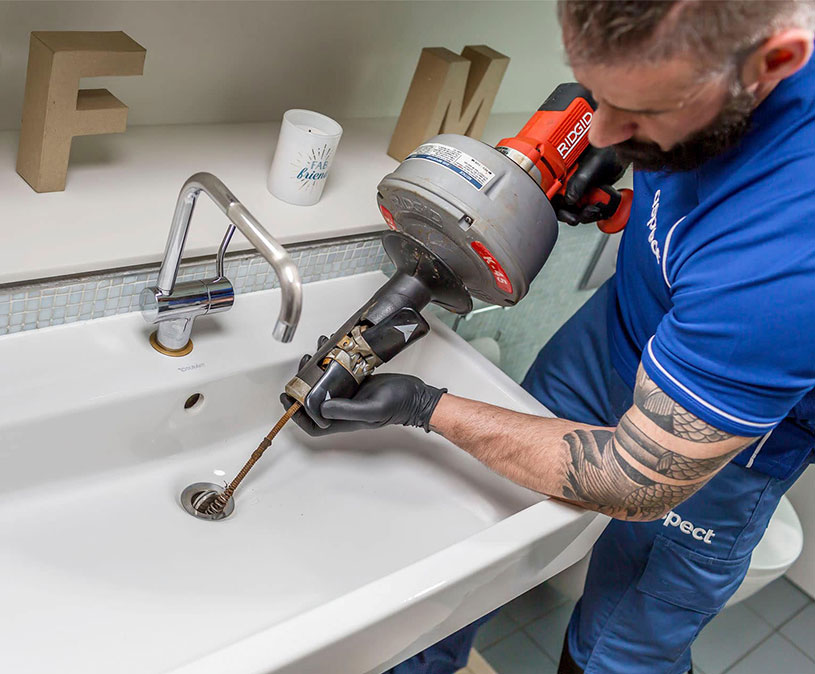
Plumbers Drain Cleaning FAQS
As Lincolnville's top choice for plumbing services since 1978, we've learned a thing or two about drain cleaning over the years. To keep yourself educated and up-to-date, here are answers to some of the most common questions we're asked:
Q:How many times per year should I have my drains cleared?
A:That all depends on what's going down your drains and how often they're used. If you have a large family, leftover grease from food and hair from showers will cause clogs quickly. In this scenario, you should clear your drains often. If you live alone and don't use your kitchen or laundry drains often, you shouldn't have to clear them as frequently as a large family.
Q:More than one of my drains is moving slowly. What's happening?
A:When two or more drains are moving slowly, you may have a main sewer line problem. These clogs are often caused by wet wipes, tree roots, and kitchen grease.
Q:How do you clean clogged drains?
A:That depends on the type of drain that's clogged. You can clean sink drains with simple household items like vinegar and baking soda. Other drains, like bathtub drains, are best cleaned with a zip stick to remove hairballs. If you're unsure how to clean a clogged drain, it's always best to rely on professional plumbers like Delk Plumbing. Don't make the situation worse than it already is!

Protect Your Property with Delk's Gas Line Installation and Repair
Did your brand new gas range just arrive, and you need help installing it? Is something wrong with your gas line, and you need it repaired? Delk Plumbing isn't only a full-service plumbing company - we also specialize in gas line installation and repair.
As a general rule, if it involves gas of any kind, it's best handled by licensed, trained, insured professionals. One minor slip-up can be catastrophic when it comes to gas line installation and repairs. To ensure your family stays safe, Delk Plumbing is ready to serve all of your gas line needs, so you know your home is protected without question.
From broilers and gas grills to ranges and gas stoves, our gas line experts are here to provide you with peace of mind.
Delk Plumbing Notice: Do not ever try to install gas lines on your own. Always contact a qualified professional who can follow the strict regulations South Carolina dictates.
Delk Plumbing offers several gas line services, including:
- Gas Line Installation
- Gas Line Repair
- Gas Leak Detection
- Gas Line Safety Tests
- Gas Line Installation & Repair for Businesses


Looking for the Best? Contact Delk for Quality Plumbers in Lincolnville, SC
When you need a residential plumber you can trust, nobody is more qualified to serve you than Delk Plumbing. With quick response times, years of experience, and stellar customer service, we can handle any plumbing job, large or small.
Unlike other plumbing companies in Lincolnville, we aim to exceed expectations with transparent pricing that is easy on your wallet. No sketchy fine print. No awkward upsells. Only reasonable rates and the highest quality plumbing services in town.
Whether you need a simple leak inspection or a complicated sump pump replacement, we're here to help. Contact our office today so we can learn more about how we can serve you.
Get Service Now
Appointment For Plumbing Services
Latest News in Lincolnville, SC
Tales of a city: Lincolnville seeks historical narratives
Jennifer Benthttps://www.postandcourier.com/journal-scene/community-news/tales-of-a-city-lincolnville-seeks-historical-narratives/article_b86e7ce0-123d-11ee-98c1-e38ed8832fdc.html
With an invitation to dinner and a call to all those with a story to tell, the Lincolnville Preservation and Historical Society is requesting the community’s presence at its upcoming Family Reunion Weekend in celebration of its history and living legacy.The weekend kicks off Saturday, July 1, with the commemoration of the 100th anniversary of Lincolnville Elementary, one of about 500 Rosenwald Schools built in South Carolina and 5,000 built all over th...
With an invitation to dinner and a call to all those with a story to tell, the Lincolnville Preservation and Historical Society is requesting the community’s presence at its upcoming Family Reunion Weekend in celebration of its history and living legacy.
The weekend kicks off Saturday, July 1, with the commemoration of the 100th anniversary of Lincolnville Elementary, one of about 500 Rosenwald Schools built in South Carolina and 5,000 built all over the South from 1917 until 1932. Julius Rosenwald was a poor German immigrant who grew up in Chicago and became the first president of Sears, Roebuck and Co. Having read Booker T. Washington’s book “Up from Slavery,” he and the Tuskegee University founder later became friends and together built the Rosenwald Schools specifically for Black children at a time when public schools across the country were segregated.
The Family Reunion Weekend continues July 2 with Sunday Dinner Under the Big Tent, an event to be held from 3 to 7 p.m. in Lincolnville’s Bishop Richard Harvey Cain Community Garden. The dinner features cuisine from award-winning Gullah chef and author Charlotte Jenkins, with the tables set for okra soup, baked chicken, macaroni and cheese and sweet potato pie. While there are few left, dinner tickets can still be purchased at www.lincolnvillesc.org.
Guests will dine to the sounds of Gospel artist LaVondra Greene and the Black Diamond Band, while Victoria Smalls, executive director of the Gullah Geechee Cultural Heritage Corridor, serves as the evening’s Mistress of Ceremonies.
According to the National Trust for Historic Preservation, the Rosenwald School endeavor was the most important initiative to advance Black education in the early 20th century. Lincolnville Elementary was one such school, standing in the Charleston County independent municipality from 1924 until 1953.
Lincolnville Family Reunion event organizers hope that all those in the surrounding community with personal anecdotes and oral histories of their lives in Lincolnville will come to the school on July 1 to share those memories and help ensure that the city’s place in the fabric of Lowcountry history doesn’t fade.
“The goal of this weekend of events is to bring awareness to the rich history of Lincolnville. It’s for those who share in that history to come together and it’s about the importance of telling these stories and making sure they’re cemented,” said Dr. Pernessa Seele, a Lincolnville native who owns the land on which she grew up and is the founding president of the Lincolnville Preservation and Historical Society. She worked as an immunologist and was named by Time magazine as one of the most-influential people in the word for founding the Balm in Gilead, Inc. — a 35-year-old organization centered on the mobilization of faith communities around the health crises of HIV and AIDS.
Seele explained that Dr. Val Littlefield, a professor of history at the University of South Carolina and the college’s Interim Director of Institute for the Study of the Reconstruction Era, is leading the process of gathering Lincolnville’s oral histories.
Lincolnville is a Black-founded city established in 1867 by seven formerly enslaved men who purchased the original 620 acres from the South Carolina Railway Company for $1,000. That effort was led by Richard Harvey Cain, an abolitionist who became Bishop of the African Methodist Episcopal Conference and led Charleston’s First Emmanuel AME Church.
Lincolnville’s inception is an example of what was necessary for Black people to forge a home in the midst of continued White resistance to the former slaves’ new emancipated status following the Civil War.
“This event is about the community coming together as past, as present and as future,” said Seele. “In many ways, Lincolnville has been left behind. Now, we are making people in the area aware of the rich history that is so unknown. Lincolnville is an untold story, and we are about the mission of telling it.”
Through a partnership with the Dorchester Alcohol and Drug Commission, the Save A Life Tour visited Dorchester District 2 high schools.
The Save A Life Tour is a comprehensive, high-impact safe-driving awareness program that informs, educates and demonstrates the potentially deadly consequences resulting from poor choices and decisions made by the operator of a motor vehicle. Students that participate receive a message about the dangers of driving under the influence as well as texting and driving, and are given the opportunity to simulate driving while impaired and distracted.
“We just talk to them about making that choice,” said Taryn Floyd, athletic director at Fort Dorchester High School. “It’s all about providing more information and getting the information out there. They watch a 45-minute video leading up to the simulated driving tests, then they take an assessment survey. After the simulated driving tests, they do a post assessment survey.”
A major component of the program is knowledge retention. After completing the tests, students were asked to sign a pledge card and a recognition banner presented to the school to be displayed when the event is complete.
Behre: The name Lincolnville is the first and surest sign this SC town is different
Robert Behrehttps://www.postandcourier.com/opinion/commentary/behre-the-name-lincolnville-is-the-first-and-surest-sign-this-sc-town-is-different/article_74ec57ae-3ad3-11ed-a8a7-2771f6582beb.html
LINCOLNVILLE — This small town may be South Carolina’s least understood, most unique historical place. Its relative anonymity stems partly from its tucked-away site along railroad lines where Berkeley, Charleston and Dorchester counties meet up, partly from its small size, and partly from its origins during one of the most tumultuous chapters of the state’s history, Reconstruction.The town, which I’m guessing is the state’s only public place named in honor of President Abraham Lincoln, didn’t merit ...
LINCOLNVILLE — This small town may be South Carolina’s least understood, most unique historical place. Its relative anonymity stems partly from its tucked-away site along railroad lines where Berkeley, Charleston and Dorchester counties meet up, partly from its small size, and partly from its origins during one of the most tumultuous chapters of the state’s history, Reconstruction.
The town, which I’m guessing is the state’s only public place named in honor of President Abraham Lincoln, didn’t merit an entry in the South Carolina Encyclopedia — not even in the index. Many people who live in the Charleston region don’t even know where it is.
But Pernessa Seele, whose ancestors helped found this incorporated African American town and who grew up and went to school and church here before moving away for work, hopes to change that. She seems uniquely positioned to do so. Her professional experience includes having founded and run The Balm in Gilead Inc., a 33-year-old Virginia-based nonprofit that works with faith communities in the United States and in the United Republic of Tanzania in East Africa to reduce health disparities.
“Lincolnville and its history live in me. It’s in my blood,” she says. “Lincolnville has just been sitting here waiting for me to come back and get busy.”
And she has. She still hasn’t moved back full time, but she has founded the Lincolnville Preservation & Historical Society and printed brochures and newsletters to share the town’s story. She has reached out to the Clemson’s Graduate Program in Historic Preservation for help documenting and assessing the town’s Bible Sojourn Cemetery and one of its most curious surviving buildings. And she has plans for a historical park as well as walking and biking trails that would make the town’s past more accessible to present eyes.
While many people driving along U.S. Highway 78 south of Summerville might notice a Lincolnville town limits sign, it’s hard for passing motorists to appreciate what’s here, particularly beyond the town hall at 141 W. Broad St. (originally the 19th-century Williams Graded School, a Rosenwald School) that was placed on the National Register of Historic Places in 1980 but suffered a severe fire two years later. It was rebuilt as the Town Hall in honor of former longtime Mayor Charles Ross.
The town’s story began just two years after the end of the Civil War when U.S. Rep. and Emanuel AME pastor Richard Cain led a group of seven black Charleston men, all of whom were likely frustrated with their treatment in the city, to find a place for a new community they could call their own. They found a site along the train line about 20 miles north of Charleston and spent $1,000 to buy 620 acres from the railroad. The tract was known as “Pump Pond” and formed a perfect circle around the stop where the train’s engineer could get fresh water.
Unlike many other 19th century settlement communities, Lincolnville incorporated in 1889 and survives to this day as a local government still led largely by African Americans, many descended from the town’s early generations.
In that sense, it’s unique. The historic African American town of Atlantic Beach began in the 1930s but didn’t incorporate until a year after the Civil Rights and Voting Rights acts had passed. Maryville, just two miles west of the Charleston peninsula, was incorporated in 1886 but was dissolved in 1936. Mitchelville on Hilton Head Island began during the Civil War as a military mission and evolved into a self-governed community of formerly enslaved people, but it never incorporated, and it slowly faded after the war.
Lincolnville’s past can still be read on the landscape, if you know where to look — not unlike the historic cornerstone on Wesley Methodist Church, which notes its 1887 beginnings but which also is obscured by lattice placed around the base.
Recognizing Lincolnville’s place in history
Post and Courierhttps://www.postandcourier.com/photo_galleries/recognizing-lincolnvilles-place-in-history/collection_0839a4f6-dbc6-11e8-8306-7341b18bf19f.html
Officially incorporated in 1889, Lincolnville quickly became a place where formerly enslaved families flocked during Reconstruction. In these early years, community leaders built a one-room jail, established a small school and formed churches.Buy NowBuy NowLincolnville Elementary School class from the 1940s. ProvidedBuy Now...
Officially incorporated in 1889, Lincolnville quickly became a place where formerly enslaved families flocked during Reconstruction. In these early years, community leaders built a one-room jail, established a small school and formed churches.
Lincolnville Elementary School class from the 1940s. Provided
To many, Lincolnville is a place on the route between Ladson and Summerville. Wade Spees/Staff Friday, October 12, 2018
Lincolnville’s history was compiled and written by Christine W. Hampton and Rosalee Washington. Wade Spees/Staff Monday, October 15, 2018
Thought to be the oldest house in Lincolnville. Wade Spees/Staff Monday, October 15, 2018
“Community is oneness. We want them to know the love of God. We want to demonstrate the kind of character Christ has,” said Jane Bruno and Donna Turner (right) during a noonday prayer meeting in Lincolnville on Monday, October 15, 2018. Wade Spees/Staff
Lincolnville’s long history is tied to its location near a railroad artery. Wade Spees/Staff Friday, October 12, 2018
Lincolnville’s jail is its oldest building, from the late-1800s. Wade Spees/Staff Monday, October 15, 2018
“Our goal is to help get the town on the map,” says Rev. Edward Johnson who wants to highlight community’s history — including its oldest building — a jail from the late-1800s.
Efforts to obtain a historical marker for Lincolnville were led by New Vision Cathedral’s Rev. Edward Johnson. Wade Spees/Staff Monday, October 15, 2018
As featured on
Next week’s topic: Close-up
From Sue Austin of Summerville, “This is an artist in action in Loreto, Italy. It is in the piazza of the Basilica della Santa Casa in the LeMarche region of Ancona.”
From Sherrill Biggers of Charleston, “Walking north on Anson Street and looking down Guignard Street, you have to look twice to see that the horse, and his/her window, are not real, but instead are street art at its most realistic. Taken in the summer of 2021 at Old South Carriage Co. in Ansonborough.”
From Kay Bilisoly of Goose Creek, an image of Graffiti Park in Goose Creek.
From Ronald Allan Charles of Goose Creek, “Interesting painting on wall of a café in Corte, Corsica.”
From Merv Gibson of Charleston, “The ‘Hat Man’ mural was painted on the wall of the 48 Broad Street building in Charleston, SC, to advertise the Plenge Haberdashery. The entire painting is a montage of hats.”
From Carl Johnson of Mount Pleasant, “Cologne, Germany in August 2022. A message from the street artist that rings especially true in today’s crazy world.”
From Rosemary O’Grady of Goose Creek, “Photo taken in Philadelphia, PA, in 2011.”
From Russell Read of Mount Pleasant, “Photo taken in Hattiesburg, MS at the Hattiesburg Pocket Museum.”
From Ken Schaub of Daniel Island, “Framed art on the side of an old building in Pickens, SC.”
From Herbert Schiller of Mount Pleasant, “Street art in Valparaiso, Chile.”
From Lara Wilson of Mount Pleasant, “A mural on a street in Lisbon, Portugal.”
From Louis Yuhasz of Sullivan’s Island, “This photo was taken at the Mas X Menos grocery store in Jaco, Costa Rica, where the street art is truly amazing.”
Military families honor veterans at abandoned cemetery in Lincolville
Alexis Simmonshttps://www.live5news.com/story/38293122/military-families-honor-veterans-at-abandoned-cemetery-in-lincolville/
LINCOLNVILLE, SC (WCSC) - Military families are rallying to preserve an abandoned Lincolnville cemetery with veterans buried from World War I and World War II.There are also veterans buried dating back to the 1800s.The cemetery is tucked behind the woods off of Lincolnville near Greenwood Street.Disabled Veteran Shirley Zinn has been on a mission since 2015 to protect the property and find out who is buried there."This angers me. These people are forgotten. How many stones out here say 'gone but never forgott...
LINCOLNVILLE, SC (WCSC) - Military families are rallying to preserve an abandoned Lincolnville cemetery with veterans buried from World War I and World War II.
There are also veterans buried dating back to the 1800s.
The cemetery is tucked behind the woods off of Lincolnville near Greenwood Street.
Disabled Veteran Shirley Zinn has been on a mission since 2015 to protect the property and find out who is buried there.
"This angers me. These people are forgotten. How many stones out here say 'gone but never forgotten.' This is forgotten," Zinn said.
For the past few years she along with others have placed flags by the graves of veterans for Memorial Day.
The property has not been maintained so several markers have been covered and it's difficult to walk through the grave site because the grass and plants are overgrown.
"Honestly our veterans need to be honored. We need to have stones where they lay," Zinn said.
Zinn says at least 15 grave markers are gone since her first visit a few years ago.
While at the site she uncovered one today.
"They're not in here or they're so deeply buried we can't find them," Zinn said.
Leaders of the Veterans of Foreign Wars Post 3433 in Ladson are helping to preserve the cemetery.
They have a vision of transforming the space.
"Make it into a park where people can come out and visit their loved ones," said Junior Vice Commander of the VFW Post 3433, Robert Zdenek.
They're asking for help in restoring the property because there is a large amount of work to do.
"For them to be forgotten completely and literally just thrown to the rubble the way this place has been maintained is totally unacceptable," said Commander of the VFW Post 3433 Todd Howard.
The cemetery backs up to the Lakes of Summerville. There's a fence that separates them.
"They deserve to be remembered for their lives for what they've done, not only the veterans but the other people who are buried here as well," District 1 Commander for the VFW Department of South Carolina Edwin Tufts said.
Zinn says in 2015 she counted 27 non-military people buried there and about 21 World War I and World War II veterans buried there.
"If you put on that uniform, no matter what uniform it was, you honored our country and we deserve to honor you back," Zinn said.
The group will attend the Lincolnville Town Hall Meeting next Wednesday at 7 p.m. to make town officials aware of the conditions of the cemetery in hopes of getting help to maintain it.
If you'd like to help with the efforts you can reach the Junior Vice Commander of the Veterans of Foreign Wars Post 3433 at 843-568-6811.
Copyright 2018 WCSC. All rights reserved.
Lincolnville added to national Reconstruction network
Andy Brackhttps://charlestoncitypaper.com/2022/07/06/lincolnville-added-to-national-reconstruction-network/
It’s not every day that a whole town gets added to a national historic network, but that’s what happened Tuesday for Lincolnville, a town of about 2,500 people on the edge of Charleston County near Summerville.The National Park Service announced Tuesday that Lincolnville and four other sites were new additions to the Reconstruction Era National Historic Network, a group of sites largely centered on South Carolina that help...
It’s not every day that a whole town gets added to a national historic network, but that’s what happened Tuesday for Lincolnville, a town of about 2,500 people on the edge of Charleston County near Summerville.
The National Park Service announced Tuesday that Lincolnville and four other sites were new additions to the Reconstruction Era National Historic Network, a group of sites largely centered on South Carolina that help to tell the story of American Reconstruction after the Civil War. It’s part of an effort established in 2019 to create the Reconstruction Era National Historic Park in Beaufort.
Lincolnville’s part of the Reconstruction story is key to understanding the transformation that the United States underwent as newly freed African Americans became integrated into the country’s social, political, economic and labor systems.
Lincolnville, the Park Service said in a news release, is a “freedmen’s town founded in 1867 by seven African American men who purchased 620 acres to create a community of homes, churches and schools for African American people, primarily of Gullah Geechee heritage, who had migrated from the Sea Islands.”
Some of the descendents of original settlers still live today in the small town “among original structures, cemeteries and live oak trees, actively preserving their rich Gullah Geechee heritage and celebrating their ancestors’ ability to overcome adversity during Reconstruction to found Lincolnville.”
“These sites tell critical stories related to the Reconstruction Era,” said Reconstruction Era National Historical Park Superintendent Scott Teodorski in the release. “They join sites from across the country that focus on this important period in our history. We are pleased to welcome these new sites to the network and work with them to share their stories.”
The Rev. Richard Cain (1825-1887), a major Reconstruction leader who pastored Charleston’s Emanuel AME Church after the war, is credited with leading the effort to found Lincolnville. He later was elected to the state Senate in 1868 and served two terms in the U.S. Congress.
“He also purchased more than 500 acres of land about 25 miles north of Charleston and sold lots to African Americans,” according to “We Are Charleston: Tragedy and Triumph at Mother Emanuel” by Herb Frazier, Bernard Powers and Marjory Wentworth. “These initial sales were the basis for the settlement of Lincolnville, which Cain planned to become an all-black town in which the residents could show their capacity for discipline, order and prosperity.”
About half of Lincolnville’s residents today are Black, according to Census Reporter.
Three other South Carolina sites added to the Reconstruction network Tuesday were Redcliffe Plantation State Historic Site in Aiken County; Randolph Cemetery in Columbia; and the Schofield Normal and Industrial School in Aiken. Also added was the D.C. Legacy Project: Barry Farm-Hillsdale in southeast Washington, D.C.
Disclaimer:





